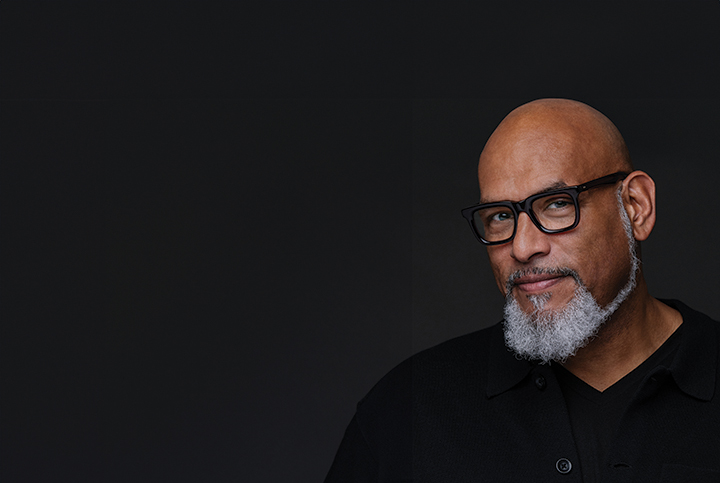Winning for sustainability professionals is to encourage action today to avert disaster tomorrow. “What people in the sustainability space are trying to do is effort now, new thinking now, new approaches now,” he says.
“I want to encourage people to acknowledge that there are skills and knowledge they need to gain if they want to be the type of leader they aspire to be. As human beings, every time we face another person, we tell them who we think they are.”
The Pygmalion effect
Giants, Amaechi argues, can assert power and make an impression from anywhere within an organisation. But managers and staff must remember that how they interact with people can damage other people’s self-regard and performance.
Instead, he points to the Pygmalion effect, a long-established psychological phenomenon in which leaders with high expectations of their followers improve their followers’ performance.
“It’s not just about being nice to colleagues or direct reports,” he explains. “It’s the idea you can impact their performance. If you think they can do it, they are more likely to do it.”
Amaechi argues that so many leaders “ignore the talent under their noses”. This is particularly pressing with the onset of artificial intelligence (AI) and the creation of “generic, almost cookie-cutter-like workforces”. AI, robotics and automation, among other trends, threaten jobs, particularly those at the lower end of organisations.
In time, it becomes harder to promote people who have mastered skills and developed intellectual and emotional intelligence around their workplace and industry into the middle layer of organisations. More people are rising to the middle layer without the skills and training to deal with people, never mind lead them.
“We’ve always elevated people not because of their skills in interpersonal communication, leadership, management, their ability to enable people to thrive or to recognise what talent looks like. We elevate them because we don’t want to lose them. They are technically good and if we don’t give them a pay rise and some responsibility they will leave.
“Our systems for recognising talent are really poor, especially in the assessment of people entering organisations. Most of the things we use are not measures of talent, they are proxies for measuring talent.”
Tomorrow’s workforce
Amaechi points to a McKinsey study in 2016, which predicted that by 2030 between 75 million and 375 million workers globally will need to move out of their occupations to find work. People must expand their perception of what talent looks like in an environment where everything changes so rapidly.
“In that environment, thinking about what skills someone has today is not relevant to whether they will be relevant in 10 years’ time.
“Talent comes in unusual packages. Are they agile thinkers? Are they learning adapters? In this sustainability space, so much is changing, not least how we are going to communicate effectively with people we need to convince and change.
“But some of the ways it’s being communicated is literally as if white middle-class people are talking to other white middle-class people who do not have all the concerns that many people have. That’s where inclusion can help.”
The environmental and sustainability movement is one of the UK’s least diverse sectors. Research by Racial Action for the Climate Emergency published in February revealed that just 6% of employees identify as People of Colour and other racially or ethnically minoritised groups. However, it compares with an average across the UK workforce of 15% of employees who identify as People of Colour and other racially or ethnically minoritised groups.
“If you are interested in sustainability, it is curious to have an environment that is interested in something that is disproportionately affecting certain parts of the world and disproportionately caused by other parts of the world yet has representatives from only one side of that picture.
“The amount of evidence we have gained over the past 35 years – complex, well-written, peer-reviewed analysis and meta-analysis – tells us on a granular level that creative insights and complex decision-making are improved by multiple perspectives and by diverse and inclusive teams that are well led. That goes for any sector.”
Hiding behind words
Amaechi describes unconscious bias as ‘bunkum’ and says people tend to add additional words not to clarify but to obscure. “Bias tells us enough of the picture, but when you add ‘unconscious’ to it, that allows people to hide and say it’s not my fault.
“It’s not unconscious, it’s just ugly. We call it unconscious because we don’t like it and try to hide it. I grew up in a society that gave me some ugly views of Black people despite the fact I’m a Black person; that gave me ugly views about Queer people despite being a Queer person.
“But instead of pretending [these views] are hidden in my brain in such a way that I’m more likely to manifest them, I acknowledge them and declare that they are not who I will behave like, even if they are part of some bad code that exists in my brain. I want people to embrace that we’ve all had bad teachers in life. For some it’s been television, radio and politics, and to pretend otherwise is to create harm, not avoid it."
"I want people to embrace that we’ve all had bad teachers in life. For some it’s been television, radio and politics, and to pretend otherwise is to create harm, not avoid it.”
A dearth of great leaders
So why are there so few great leaders? Being an excellent leader is “energy expensive”, Amaechi argues.
“Part of the reason we don’t have as many great leaders as we expect is not because of the epic skill levels or the toolset or knowledge but because of the sustained and consistent effort that is required.
“It’s chastening to think that one of the reasons we don’t have good leaders is because it’s hard.”
Amaechi describes himself as a humanistic psychologist. Humanism is particularly sensitive to incongruence, one of the causes of pain in life and society. This comes in many shapes and sizes – the gap between the rich and the poor, between the haves and the have-nots, the gap between what politicians of whatever party promise and what they deliver.
“The Conservatives are experiencing that right now [in the UK] – it’s not that nobody is Conservative any more but because the difference between what they promised and what they delivered is poop in the rivers. The gap is so big that people no longer see the integrity of it. You wear a mask and I will party.”
Organisations also fail to consider incongruence. Amaechi has a particular bugbear about aspirational mission statements.
“They speak in the future tense for some of it, they speak in the present tense for some of it, but all of it is so big a promise that there’s a big gulf between what they say and what they do. That creates pain and a stress point people can’t tolerate, a dissonance that makes people feel betrayed if they are associated with an organisation and oppressed if they are outside.
“If an organisation says that operating in harmony with our communities and environment is important, that one statement means a cascade of implications for how you approach business, where you do business and who you do business with.”
Morale is a problem in the wider environment sector. A Guardian survey of the world’s leading climate scientists in May found that many feel hopeless, angry and scared by the failure of governments and corporates to act on global heating.
Improving morale
What is Amaechi’s message to sustainability professionals?
“We are human beings who get locked in a very tiny timeframe. We think we’re only on this Earth for such a period of time, we only have influence in our working life for a length of time.
“Yet many people feel despair that they are at the top of their game, they have reached the pinnacle of where they feel they should be able to influence yet feel ignored and undervalued by people without their expertise."
“Two things can be done. Are they controlling every controllable, every lever of power and influence that they have?
“That involves restraint as well as boldness. That doesn’t mean always doing the most vociferous things. Sometimes it means doing the most sophisticated thing, even if it takes longer.
“The second is to just remember the impact of what they are doing now. It may not be any solace as the Earth warms, but they are on the right side of history. The heads that butt against walls every day will be venerated. The only thing that could damage that legacy is to stop now.
“What they are doing is heroic. They may not have crowds cheering in front of them, but some of us are cheering.”












